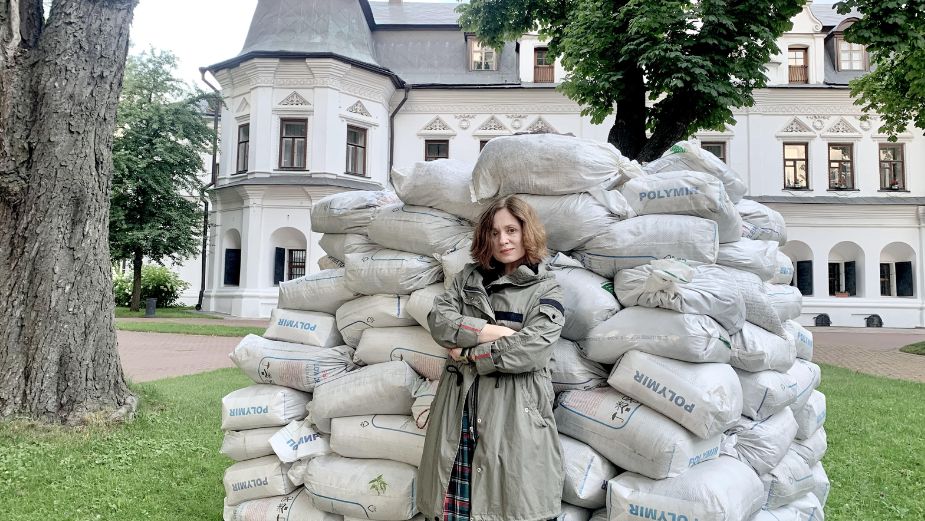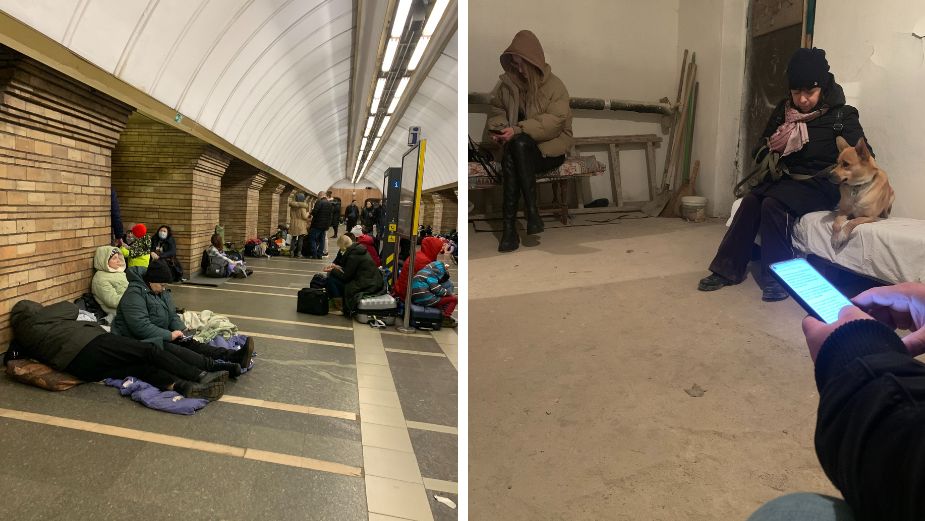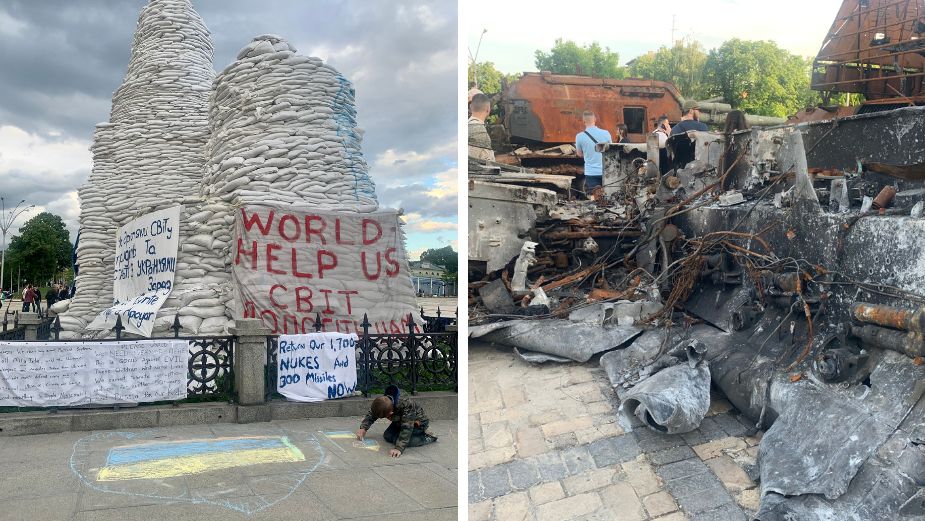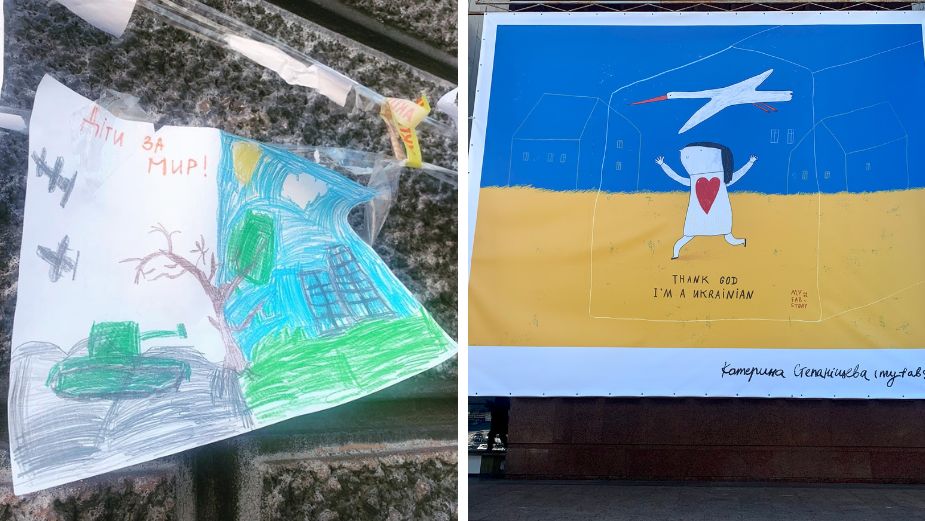20 Jul Four Months of War: Ksenia Nebesnaya Talks About Life and Work in Ukraine Today
MCA’s production consultant tells LBB about living and working in Kyiv now, and shares her experience.

Over four months have passed since Russia invaded Ukraine on the 24th of February. Since then, countless lives have been lost and it’s reported that 15 million people have been displaced from their homes. “I would say around 20% of Ukrainian territories have become a battlefield, which the rest of the country is working to support,” says Ksenia Nebesnaya, MCA’s production consultant. In the majority of cities and towns people have adapted to live with the sound of air raid sirens, defiantly pressing on in the face of unthinkable horrors that may be happening only a few hours’ drive away.
When Ksenia first realised that the Russian army had started its illegal war, the thought of leaving her beloved home country only briefly crossed her mind. “It is instinctive to consider leaving, especially when the enemy is progressing 100 miles a day and you see missiles crossing the air with your own eyes, but there was something that made me stay, a feeling that I belong here. Probably this is called patriotism. This is a difficult time for my society and country. I knew I wanted to be here because there’s a lot to be getting on with. I did stay in a different town, Rivne, for about two months but living in a refugee condition was very strange, I didn’t feel engaged with my life or work, and so I came back to Kyiv,” says Ksenia.

People hiding in Kyiv’s underground (left) and shelters (right)
While for many, it’s this February’s events that marked the invasion of Ukraine by Russia, for Ukrainians the war has been ongoing since 2014, when Russia annexed Crimea and when Russian-backed separatists in the Donbas and Luhansk regions escalated pro-Russia demonstrations into a war with the Armed Forces of Ukraine. For Ukraine, and especially the people living close to the self-declared Republics, the war has been on-going for eight years.
“Before 2014, Ukraine’s production market was very lively. The country has endless beautiful locations, highly skilled and experienced crews, all sorts of equipment, producers, and DOPs – all at an attractive price, especially compared to other European destinations. Back then, we did more work for Russian service production clients and European ones than for the Ukrainian market. After the 2014 war, the market came to a standstill for about a year, before recovering and becoming a sought after destination for productions once more. We’re at a standstill again, without a recovery date in sight for now.”
Ksenia used the break from work in 2014 to pursue one of her passions, psychology, and went on to obtain a degree in the subject. Today, she’s offering free psychological consultations to all those who need it, to cope with anxiety, fear, changes in career and relationships, and an uncertain future. Her time is split between volunteer activities and an on-going project with MCA – a production league index – which, she says, “is keeping me busy in the best way possible; it’s an international project and I’m receiving a lot of support from all my colleagues globally. It’s important for me to be able to split my time between work and helping my country and my people.” Ksenia is also helping MCA to direct humanitarian aid budget to the sources that need it most – “MCA decided to relocate the Cannes budget to the humanitarian destinations in Ukraine; this is a brilliant initiative that touches me deeply,” she adds.
For some of Ksenia’s local colleagues life now looks very different. Many have relocated their businesses abroad to Europe, some are organising evacuations and volunteering with humanitarian causes or working with journalists and documentarians – many are on the frontlines, fighting for the country’s freedom.

Ksenia says that the situation in Kyiv now is “rather quiet”, adding that “around 500 buildings were damaged or destroyed in Kyiv over the last four months, though very few in the course of the last two months, so it is getting a bit safer here. There is not a real feeling of danger despite the fact that the country is at war and the frontline is only 500 km away from here. But it’s still important to have a backpack packed, to have cash, and a full tank of fuel if there is a need to evacuate at a moment’s notice.”
The mood on the ground is understandably stern and Ksenia shared the local prognosis that the war will continue for a few more months, with some people saying that it will start to wind down by the coming winter. Until then, production work is simply not there and will probably take months to recover if the predicted timeline follows suit. “April or May, to be optimistic, is when I can maybe see some work coming back to the country,” she adds.
Until that moment comes, what can the industry do to best support Ukraine and its people? “Work and shoot with Ukrainian production companies and crews in Europe. Many people evacuated or found themselves displaced and continuing to work with them is one of the best ways to provide tangible support. I would also love to see work return to Ukraine once the war is over, we’ll be more than ready to welcome everyone,” says Ksenia.

Sign (left) reads: “Children for peace!”
As the war continues, the media is guaranteed to slow down its coverage of the events, creating an illusion that things are better or, at least, not getting worse. That’s not the truth – it’s only by continuing to listen to people like Ksenia and countless others who have found themselves in the midst of unimaginable horror that we can really understand what’s at stake, and continue to offer any and all support that we can.
deneme bonusu veren bahis siteleri
To find out how you can contribute to the creative industries’ efforts to support the people of Ukraine click here.


No Comments